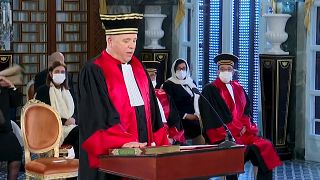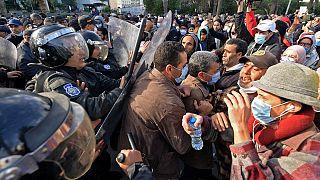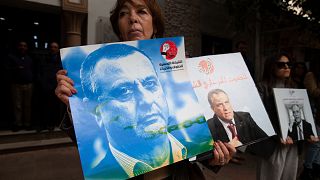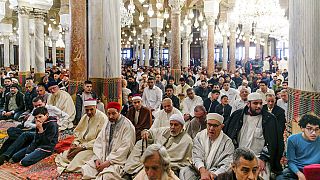Tunisia
Tunisian judges have given a hint to oppose the closure of their offices.
Head of Tunisia's main legal body says they have been locked out of their offices, a day after President Kais Saied announced a dissolution of the body.
The action implemented by the Tunisian police on Monday has been condemned and described by president Supreme Judicial Council, Youssef Bouzakher, as illegal.
"Judges will not stay silent," said Youssef Bouzakher, head of the Supreme Judicial Council, on Sunday.
On Monday morning, the CSM headquarters was surrounded by a police force, according to media reports.
"Police forces prevented all access to the CSM headquarters on Monday," Youssef Bouzakher, told AFP.
"We don't know who took this illegal decision but the police deployed said they were following instructions," Bouzakher added.
"This illegal closure without any legal grounds proves that we have reached a dangerous stage where the executive power is taking over state institutions and the judiciary by using force," he said.
President Saied has accused the judges of bias and corruption. In his late-night speech announcing that he would dissolve the council, President Saied said: "Their place is not where they sit now, but where the accused stand."
Supporters of the president are in support of the president's moves to eliminate the country of a system they see as corrupt.
However, critics say this action may lead the country towards authoritarian rule.
President Saied, who assumed full powers in July, announced the dissolution of the CSM, a body he accuses of partiality, on Saturday night.
"The CSM belongs to the past," said Mr Saied, criticizing a body he considers corrupt and which he accuses in particular of having slowed down investigations into the 2013 murders of two leftist activists.
The CSM rejected, in a statement, its dissolution "in the absence of a legal and constitutional framework", seeing it as "an attack on the Constitution and the guarantees of independence of justice".
Tunisia's 2011 uprising against the autocratic leader Zine al-Abidine Ben Ali was the first in a series of revolutions that became known as the Arab Spring.
The CSM, an independent body created in 2016 to appoint judges, is composed of 45 magistrates, two-thirds of who are elected by parliament and who themselves appoint the remaining third.












Go to video
The EU moves to fast-track asylum claims by migrants from 7 countries to speed deportation
Go to video
Police clash with students over controversial play at Kenya’s drama competition
Go to video
Haitians demand protection from surging gang violence
Go to video
Zimbabwe charges dozens for taking part in protests against President
Go to video
German authorities target Eritrean opposition group in nationwide raids
01:15
Tunisian President Saied dismisses prime minister amid political tensions